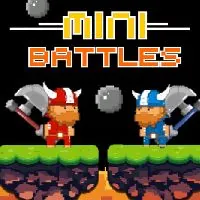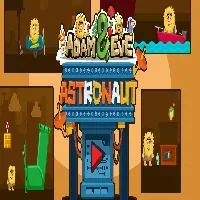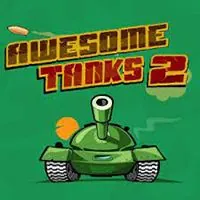POOR EDDIE
SIMILAR GAMES
Description
Poor Eddie - GitLab Games
About Poor Eddie - GitLab Games
In the vibrant and ever-evolving landscape of competitive digital endeavors, the name "Poor Eddie" has become synonymous with a particular brand of challenge and engagement within the GitLab ecosystem. When we speak of the GitLab Games, we are referring to a unique series of events and opportunities designed to foster skill development, collaborative problem-solving, and a spirit of healthy competition among developers and contributors. The concept of "Poor Eddie" within this context often relates to specific scenarios, coding puzzles, or development tasks that test the ingenuity and efficiency of participants. These challenges are meticulously crafted to push the boundaries of what can be achieved within the GitLab platform, encouraging users to explore its full potential and discover innovative solutions to real-world problems. The GitLab Games, therefore, serve as a crucible for talent, a platform for showcasing prowess, and a testament to the power of community-driven innovation. Understanding the nuances of "Poor Eddie" within this framework requires a deep appreciation for the underlying principles of software development, version control, and collaborative workflows, all of which are central to the GitLab experience.
The Genesis of GitLab Games and "Poor Eddie" Challenges
The inception of the GitLab Games was rooted in a desire to move beyond passive engagement with the GitLab platform and instead cultivate an active, participatory community. Recognizing that developers often thrive on intellectual stimulation and the thrill of overcoming complex obstacles, the organizers envisioned a series of challenges that would resonate with their core competencies. The "Poor Eddie" moniker, while perhaps playfully evocative of struggle or a less-than-ideal scenario, encapsulates the essence of these trials. These are not simply tasks; they are carefully constructed problems that often mirror real-world development hurdles, albeit presented in a gamified format. The objective is to encourage participants to think critically, experiment with different approaches, and leverage the comprehensive features of GitLab to arrive at an optimal solution. Whether it involves optimizing CI/CD pipelines, refactoring legacy code, or architecting a new feature with specific constraints, the "Poor Eddie" challenges are designed to be both educational and rewarding. They provide a tangible benchmark for skill assessment and offer a valuable learning experience for those looking to deepen their understanding of GitLab and software development best practices.
Deconstructing the "Poor Eddie" Development Scenarios
At the heart of each GitLab Games iteration lies the "Poor Eddie" scenario. These scenarios are not arbitrary; they are born from a thorough understanding of common development pain points and opportunities for enhancement. A typical "Poor Eddie" challenge might present a codebase with performance issues, a lack of robust testing, or an inefficient deployment process. Participants are then tasked with diagnosing the root cause of the problem and implementing a solution that not only fixes the immediate issue but also adheres to best practices and leverages GitLab's powerful tooling. For instance, a scenario could involve optimizing a slow-running pipeline, where the "Poor Eddie" state represents a protracted build and deployment cycle that hinders rapid iteration. Competitors would need to analyze the pipeline configuration, identify bottlenecks, and implement improvements using features like caching, parallelization, or more efficient build commands. Another scenario might focus on code quality and maintainability, presenting a module that is difficult to understand or extend. Participants would then be challenged to refactor the code, improve its readability, add comprehensive unit tests, and ensure it integrates seamlessly with the existing project, all managed within a GitLab repository. The "Poor Eddie" aspect underscores the critical need for efficient, well-architected, and maintainable software solutions.
Leveraging GitLab's Comprehensive Toolset for "Poor Eddie" Solutions
The GitLab Games, and specifically the "Poor Eddie" challenges, serve as an exceptional proving ground for the extensive capabilities of the GitLab platform. Participants are encouraged, and often required, to utilize a wide array of GitLab's integrated features to achieve success. This includes, but is not limited to, Git version control, CI/CD pipelines for automated building, testing, and deployment, issue tracking for managing tasks and bugs, merge requests for collaborative code review, container registry for managing Docker images, and Kubernetes integration for orchestration. For a "Poor Eddie" scenario focused on performance, a participant might leverage GitLab CI to benchmark different optimization strategies, using the insights gained to refine their approach. When addressing code quality, the platform's integrated linters and static analysis tools within the CI pipeline become invaluable for identifying potential issues before they are merged. The collaborative nature of GitLab is also paramount; participants often engage in extensive use of merge requests and discussions to refine their solutions, demonstrating their ability to work effectively within a team-like structure, even when competing individually. The ability to seamlessly integrate security scanning tools into the pipeline further emphasizes the holistic approach required to tackle complex "Poor Eddie" scenarios effectively. Each feature, when wielded skillfully, contributes to a more robust, efficient, and secure software development lifecycle, which is the ultimate goal of overcoming these simulated challenges.
The Competitive Spirit and Learning Opportunities within GitLab Games
Beyond the technical intricacies of each "Poor Eddie" scenario, the GitLab Games fosters a vibrant competitive spirit that drives participants to excel. The opportunity to test one's skills against a community of talented individuals provides a powerful motivator. This competitive element is not merely about winning; it is deeply intertwined with a rich learning experience. By observing the solutions submitted by others, participants gain invaluable insights into alternative approaches, discover new techniques, and broaden their understanding of the GitLab platform and software development principles. The challenges are often designed to have multiple valid solutions, each with its own trade-offs, encouraging participants to not only find a working solution but also an elegant and efficient one. The feedback loop, facilitated by the transparent nature of merge requests and discussions, allows for continuous improvement. Furthermore, the GitLab Games provides a platform for recognition, highlighting individuals and teams who demonstrate exceptional skill, creativity, and problem-solving abilities. This recognition can be a significant boost to professional development and can open doors to new opportunities within the tech community. The camaraderie that develops, even amidst competition, is also a key aspect, with participants often sharing knowledge and helping each other overcome specific hurdles, embodying the collaborative ethos that GitLab promotes.
Examples of "Poor Eddie" Challenges and Their Impact
To truly appreciate the depth of the GitLab Games, consider some illustrative examples of "Poor Eddie" challenges. One common scenario might involve a monolithic application that has become unwieldy and difficult to deploy. The "Poor Eddie" state here is the slow, error-prone deployment process. Participants would be challenged to break down the monolith into microservices, establishing robust CI/CD pipelines for each service using GitLab's native tools. This would not only solve the immediate deployment issue but also promote better modularity and scalability. Another example could be a project suffering from inadequate test coverage, leading to frequent regressions. The "Poor Eddie" challenge would be to implement a comprehensive testing strategy, including unit tests, integration tests, and end-to-end tests, all automated within the GitLab CI pipeline. This requires participants to not only write effective tests but also to configure the pipeline to ensure these tests pass before any code is merged. A more advanced scenario might involve optimizing resource utilization in a cloud-native environment managed by GitLab and Kubernetes. The "Poor Eddie" condition could be excessive costs or poor performance due to inefficient scaling. Participants would need to leverage GitLab's features for observing Kubernetes clusters, analyzing resource consumption, and implementing auto-scaling rules or optimizing deployment configurations. The impact of these challenges is profound: participants gain hands-on experience with advanced GitLab features, hone their debugging and problem-solving skills, and develop a deeper understanding of modern software architecture and DevOps practices. The "Poor Eddie" scenarios, by simulating real-world difficulties, prepare individuals to tackle these complexities with confidence in their professional roles.
The Future of "Poor Eddie" and GitLab Games
The evolution of the GitLab Games and the "Poor Eddie" challenges is a continuous journey, mirroring the rapid advancements in the technology landscape. As GitLab itself evolves, introducing new features and enhancing existing ones, the challenges will undoubtedly adapt to incorporate these innovations. We anticipate future iterations will delve even deeper into areas such as DevSecOps, leveraging GitLab's integrated security scanning tools to address vulnerabilities and compliance requirements within the "Poor Eddie" scenarios. The exploration of artificial intelligence and machine learning within development workflows, managed and orchestrated via GitLab, presents another exciting frontier for future challenges. We foresee scenarios that require participants to build and deploy ML models, optimize their performance, and integrate them into applications, all within the GitLab ecosystem. Furthermore, the increasing emphasis on GitOps principles means that future "Poor Eddie" challenges will likely focus on managing infrastructure and application deployments declaratively, using GitLab as the single source of truth. The goal remains consistent: to provide engaging, educational, and highly relevant challenges that empower developers to become more proficient users of GitLab and more effective contributors to the software development community. The "Poor Eddie" concept, as a metaphor for overcoming adversity and achieving excellence, will continue to guide the creation of these stimulating and rewarding experiences, ensuring the GitLab Games remains a cornerstone of developer engagement and skill enhancement.
Play Poor Eddie for free on GitLab Games, where we offer a dynamic platform featuring thousands of the best unblocked games online. Our extensive library ensures pure enjoyment with an ad-free experience, keeping you immersed in the action without distractions. Accessible from school, work, or home, our Gitlab games deliver seamless fun anywhere you are. We’ve streamlined the experience—play effortlessly with your keyboard or a simple click, tailored to how you like to game. Dive into our collection of unblocked games, including popular categories like unblocked games 66, unblocked games wtf and cool math games Gitlab, and enjoy entertainment that’s always within reach and endlessly captivating.
















































